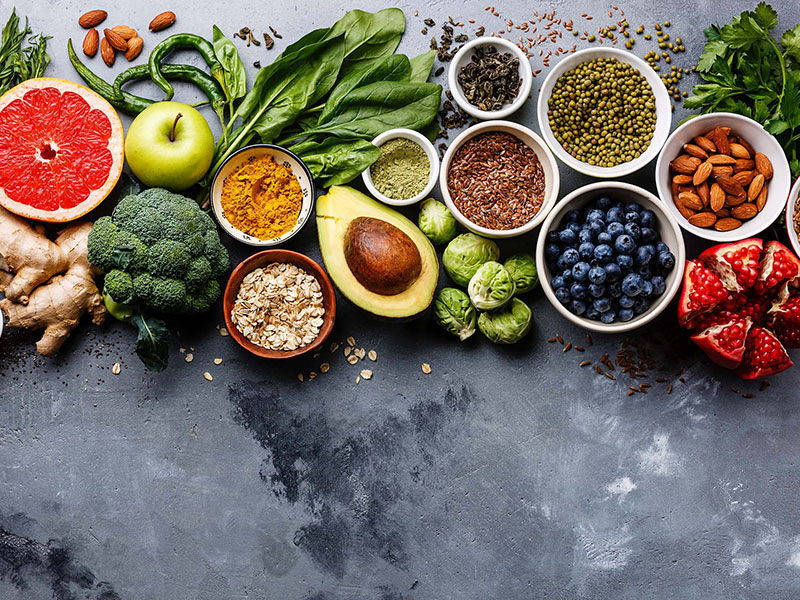Eat healthy, cut food costs and reduce food waste
Friday, March 1, 2024
Grocery prices are continuing to rise, and consumers are feeling the pinch. March is National Nutrition Month so now is a great time to address healthy eating while saving money and cutting down on food waste.
With higher costs on utility bills, rising interest rates and increased food prices, consumers are finding it harder to make ends meet, said Janice Hermann, Oklahoma State University Extension nutrition specialist.
“It’s more important now than ever to use wise strategies before, during and after grocery shopping to put healthy meals on the table, maintain your food budget and reduce food waste,” Hermann said. “A healthy eating style can help you be healthier now and in the future, which in the long run can save money on healthcare costs.”
Hermann suggests becoming familiar with USDA’s MyPlate and using it as a guide to create an eating plan. MyPlate can help make small changes that pay big dividends both in your pocket and with your health.
When planning meals:
- Make half your plate fruits and vegetables
- Make half your grains whole grains
- Use low-fat or fat-free milk or yogurt
- Vary the protein
- Consume foods with less saturated fat, sodium and added sugar
- Drink water instead of buying other beverages
- Make small changes that are sustainable and work within your family’s food preferences, health goals and budget
Planning meals and snacks will help cut costs if consumers stick to the list and purchase only needed items. Check the MyPlate website for budget-friendly, healthy meals. Go through your pantry, refrigerator and freezer to inventory what you already have on hand and use these items in upcoming meals.
It’s important to make a grocery list and stick to it. Organizing the grocery list using the store’s layout helps speed up the shopping process and cuts down on impulse buying.
“Everyone’s schedules are busy, so choose recipes that are quick and easy to prepare. This helps eliminate the need for takeout on days when you don’t feel like spending a lot of time in the kitchen,” Hermann said. “On weekends, prepare larger meals and incorporate those leftovers into other meals throughout the week. This makes for a quick and easy weekday dinner if you just have to reheat and serve.”
- Other ways to save on food costs include:
- Buy in-season fruits and vegetables
- Buy sale items in bulk and freeze or store properly
- Find bargains on day-old varieties
- Have a meatless meal once or twice a week
- Beans, peas, lentils and eggs are great sources of lower-cost protein
- Chicken and pork may be less expensive than other meats
- Extend meat with beans or vegetables in chili or casseroles
- Check sell-by and use-by dates to ensure you’re getting the freshest product possible
- Join a store’s loyalty program
“Oklahoma families are spending more of their budget on food than they ever have, but taking time to plan meals and shop smartly will help ensure everyone is eating healthy and reducing food waste,” Hermann said.

